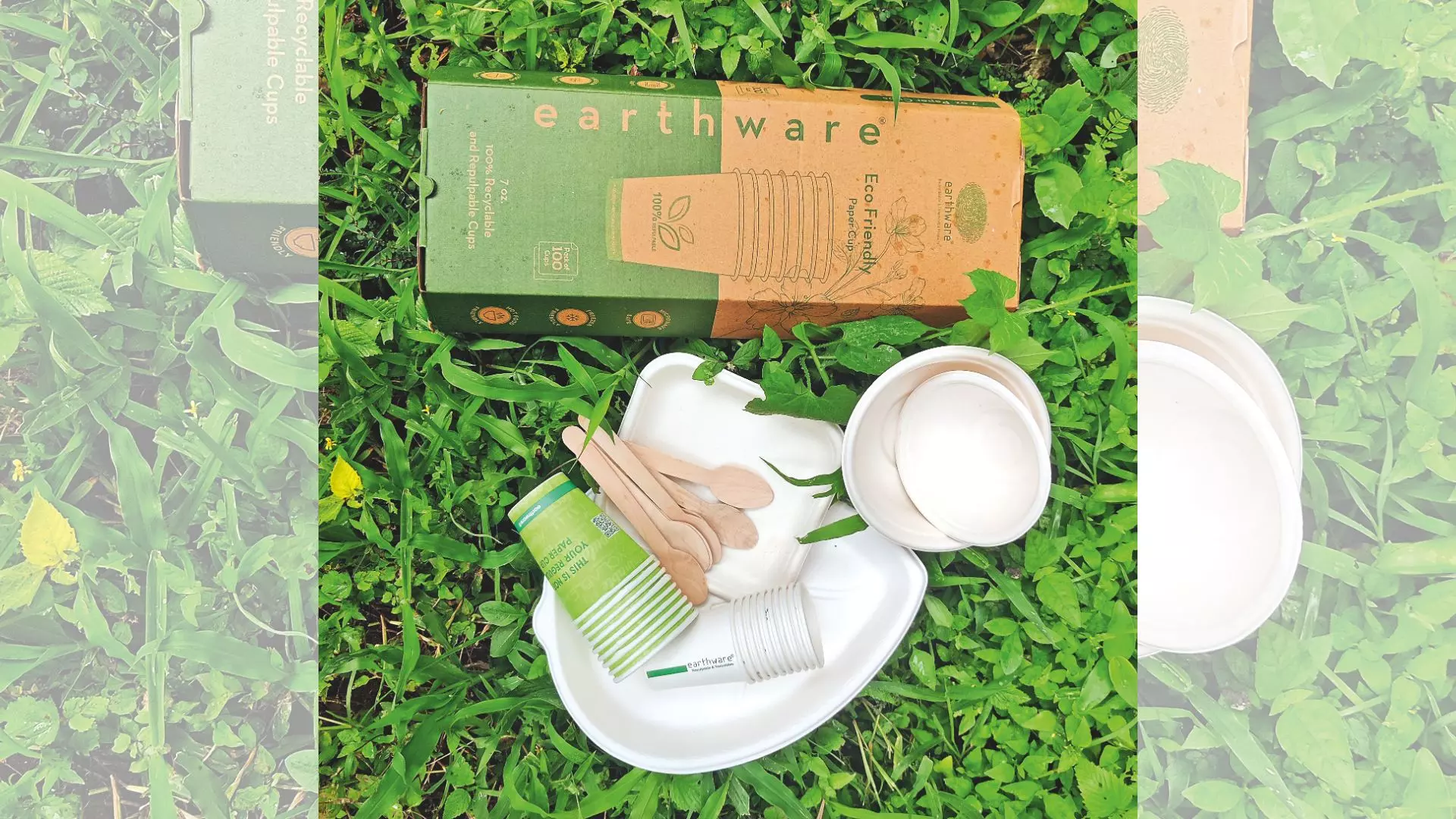Tableware for a green lifestyle
Samanvi Bhograj is making a difference in the environment by fighting plastic pollution with her innovative biodegradable tableware made from sugarcane bagasse

Plastic containers and tableware made from styrofoam are convenient, but they harm health and the environment. “The use of plastic and thermocol tableware poses risks to human health and the environment. These materials can leach harmful chemicals that disrupt natural processes and contribute to various health issues,” says Samanvi, the founder and director of Visfortec Private Limited – a company that manufactures 100% biodegradable tableware products under the brand name ‘Earthware’, adding, “The huge consumption of single-use disposables and the lack of effective recycling options motivated me to start making eco-friendly tableware. Our biodegradable products are designed to minimize waste and help reduce the environmental footprint, providing businesses with an eco-conscious option.”
Samanvi the third-generation entrepreneur, has grown up seeing her grandfather and father B Raghavendra Rao’s steel forging business and was inspired to create a business of sustainable eco-friendly products. An Electrical Engineer from the MS Ramaiah Institute of Technology, Bengaluru and MBA in Finance from Marshall University in the USA, she started in 2011 her venture at the age of 25, Visfortec Pvt. Ltd. Today, the company is producing Eco-friendly dinnerware and is catering to organizations, restaurants and takeaway shops all over India. The products include food containers, tableware like plates, bowls, meal trays and cups.
Challenges
Samanvi had to face many challenges in making and marketing her Eco-friendly range. Many consumers and businesses were not aware of the benefits of switching to eco-friendly products, requiring efforts to educate the market. “Competing with established brands that offered lower-cost plastic and thermocol alternatives posed a significant hurdle. Sourcing sustainable materials proved challenging, especially as demand grew. Navigating the regulations surrounding eco-friendly certifications and product standards was complex and time-consuming,” she states.
Samanvi also works with women to produce packaging material like bags, bin liners and garment covers made of jute, paper and cloth. Her team visits villages in Karnataka and employs women who work from home.
“Overall, the growth of our eco-friendly tableware business reflects a broader trend toward sustainability, and we continue to innovate and expand. Our initial setup involved investing in automated machines that enhance production efficiency and ensure consistent quality in our eco-friendly tableware. With these advanced technologies, we can produce approximately 1 to 2 tons of bagasse daily and manufacture around 200,000 to 300,000 paper cups per day. This significant output not only meets the growing demand for sustainable products but also reinforces our commitment to providing high-quality, eco-friendly solutions for our customers,” adds Samanvi.
“Transitioning to eco-friendly alternatives and prioritizing recycling efforts are essential steps to mitigate harmful effects and promote a healthier planet for future generations,” states Samanvi, the mother of two kids.
Today along with her husband Ram Bhavaraju apart from eco-friendly packaging, the duo provides specialized services, particularly in the electric vehicle (EV) sector. To help businesses set up efficient production lines and battery plants; integrating technology into these processes enhances operational efficiency and reduces waste. Samanvi focuses on reducing plastic waste by developing biodegradable products, while Ram leverages advanced technologies to improve efficiency and quality in production. Together, they aim to inspire businesses and consumers to prioritize eco-friendly solutions, paving the way for a greener future.
“By supporting the development of efficient battery production, we are helping businesses meet the growing demand for EVs and promote sustainable practices. People are now mindful of their consumption patterns, reducing waste and conserving energy, The rise in awareness of sustainable living reflects a broader cultural transformation, with individuals prioritizing environmental support for a healthier planet,” concludes Samanvi.

